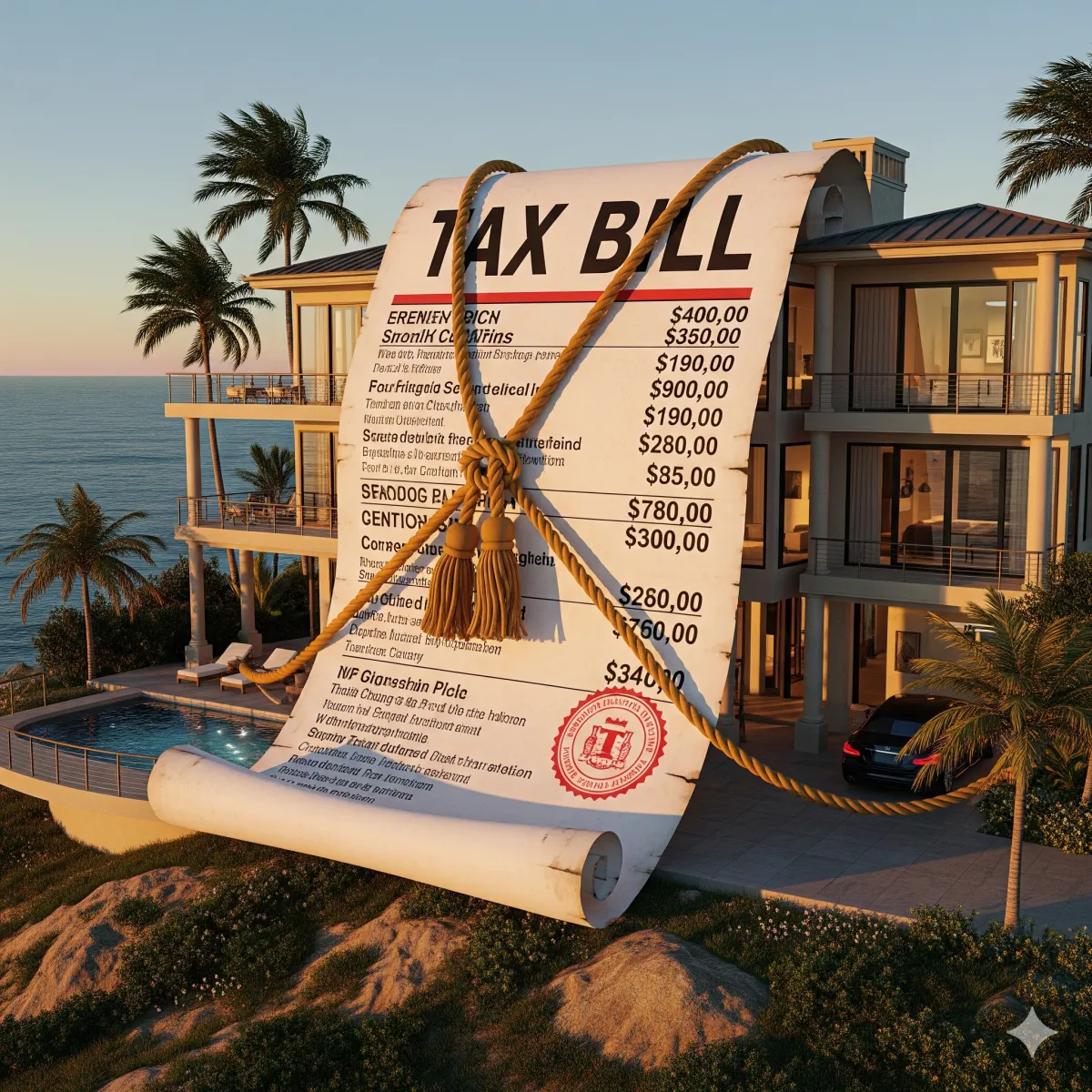
The “Taylor Swift Tax” Is Spreading — Could California Be Next?
Across the country, states are experimenting with new taxes on luxury second homes, and the headlines have latched onto a catchy name: the “Taylor Swift Tax.” Originally coined because of the pop star’s lavish Rhode Island estate, this surtax trend is now being debated in places like Rhode Island, Montana, and Massachusetts’ Cape Cod. But what does this mean for California homeowners and investors—especially those who own second homes in coastal or high-demand areas?
What Exactly Is the “Taylor Swift Tax”?
The policy typically takes the form of a surtax on high-value, non-primary residences—usually starting at $1 million in assessed value. Rhode Island’s version, for example, adds $2.50 per $500 of assessed value for these properties. That means a $2 million second home could see an extra $10,000+ annually in property taxes.
The stated goals are twofold:
Generate revenue for local governments.
Discourage “dark homes”—luxury properties that sit empty for much of the year, reducing housing availability for residents.
Why Californians Should Pay Attention
California already has some of the highest housing costs in the nation, and property tax debates are constant. While Proposition 13 keeps annual increases capped at 2%, policymakers are always searching for new revenue sources to address housing shortages, homelessness, and infrastructure.
Cities like San Francisco and Los Angeles have already tested versions of “vacancy taxes” or “mansion taxes” on high-value transactions. A statewide “second-home surtax” could easily become the next idea on the table—especially in popular second-home markets like:
Napa/Sonoma wine country
Lake Tahoe
Santa Barbara and Malibu
Palm Springs and Coachella Valley
For Californians with multiple properties, this could materially change the math on carrying costs.
The Debate: Fairness vs. Investment Impact
Proponents argue that luxury second homes often contribute little to local housing supply, while wealthy owners can afford to pay more in taxes.
Critics counter that these homes drive local economies by bringing in tourism, construction, and service jobs—and that discouraging investment may backfire.
For investors in California, the fear is that a “Taylor Swift Tax” would layer onto already complex property tax and transfer tax structures, making second-home ownership less attractive.
What You Can Do Now
Stay informed: Follow tax proposals at both the state and municipal level—these policies often start as local pilot programs.
Run the numbers: If you own or are considering a second home in California, model the impact of a potential surtax on your long-term holding costs.
Plan your strategy: Work with your tax advisor to explore entity structuring, rental operations (such as short-term rental status), or 1031 exchanges as possible buffers against rising tax burdens.
Final Thoughts
The “Taylor Swift Tax” may sound like a media gimmick, but it reflects a real policy shift toward targeting luxury and secondary homes as untapped sources of revenue. If you’re a Californian who owns—or aspires to own—a second property, it’s worth keeping this trend on your radar.
Because when a tax idea catches on in other states, California is rarely far behind.
Before potential surtaxes reshape the economics of second-home ownership in California, it’s worth understanding how your portfolio could be impacted. Our Realm Wealth Map helps investors stress-test their real estate holdings against evolving tax policies—and find hidden opportunities.
Custom HTML/CSS/JAVASCRIPT

